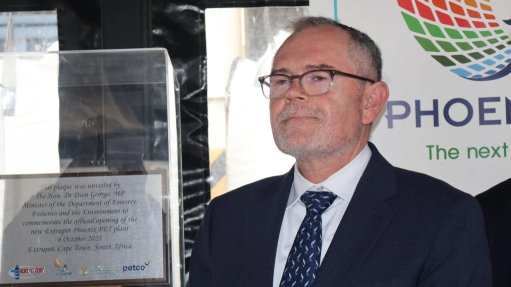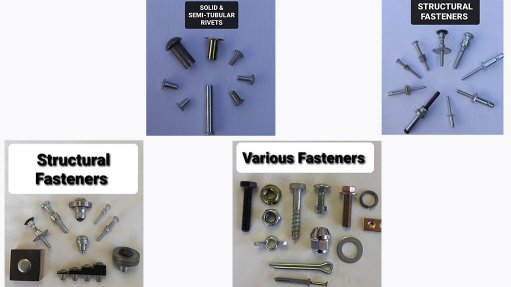G20 meetings yield new opportunities in international trade
This article has been supplied and will be available for a limited time only on this website.
By: Miguel da Silva - Group Executive: Business Banking at TymeBank, examines the developments affecting South Africa's SMEs as AGOA ends and the G20 accelerates
As expected, the African Growth and Opportunity Act (AGOA) formally lapsed on 30 September 2025, marking a dramatic turning point in South Africa’s trade relations with the United States. The broader context now includes renewed U.S. tariffs, tentative proposals for a short-term extension, and deepening uncertainty over the future architecture of U.S.–Africa trade.
This signals a new phase in South Africa’s international trade dynamics, with the pragmatic course of action for US-focused exporters now clearly being to expand export opportunities elsewhere in the world. Two agreements signed on the sidelines of the G20’s Agricultural Working Group in late September show how these new opportunities might materialise. South Africa secured two new Memoranda of Intent with Brazil and Japan, which outline a path to expanded trade, knowledge exchange and new technology. Minister of Agriculture John Steenhuisen called the agreements “a testament to our shared vision for a food-secure future”, and an opportunity to “position South African agricultural products more competitively.”
The Japanese agreement targets smallholder farmer development specifically. "We must always view these efforts through the lens of what benefits our farmers, especially smallholders, and strengthens the food security of our people," Steenhuisen emphasised. Cooperation areas include knowledge sharing, technical visits, trade promotion, and potential establishment of a Joint Agricultural Working Committee.
These partnerships demonstrate quantifiable trade diversification success. South Africa-Brazil agricultural trade reached R9.7 billion in 2024, representing an 80.5% increase from R5.4 billion in 2020. South African exports to Brazil increased 92.8% over the same period, from R142.6 million to R274.9 million.
As the G20 meetings ramp up, ministers, heads of state and trade delegations will be alert for opportunities in a global trade landscape that has been disrupted by the US’s trade policies. South African SMEs are likewise urged to take advantage of these opportunities, and to prioritise a proactive approach to market diversification.
FATF grey list exit promises SME financing transformation
South Africa has substantially completed all 22 action items in its Financial Action Task Force (FATF) Action Plan, positioning the country for delisting at the FATF Plenary meeting on 24 October. The completion includes sustained increases in money laundering investigations, prosecutions, enhanced supervision of financial institutions, and comprehensive counter-terrorism financing frameworks.
SARB has warned of "significant repercussions for the financial sector" if exit delays continue, noting that "domestic financial institutions' access to the global financial system could become increasingly restricted." Current restrictions have already contributed to FDI inflows declining 57.8% year-on-year from US$151.8 billion in 2022 to US$64.1 billion in 2023.
For SMEs, successful delisting promises immediate operational benefits. Enhanced due diligence requirements that currently cause payment delays and increase compliance costs will end, while correspondent banking relationships should normalise. Trade-finance access will improve significantly, with letters of credit becoming more accessible and cost-effective.
The European Securities and Markets Authority currently classifies South Africa as high-risk until 28 March 2026, with the UK following suit since December 2023. Multiple European and Asian banks have imposed transaction caps and additional documentation requirements that particularly burden smaller exporters. These restrictions should lift following successful FATF delisting.
National Treasury emphasised the strategic importance, stating: "Improvements to South Africa's AML/CFT regime are particularly important given the legacy of state capture. Improvements in these domains are critical not just for getting off the grey list, but for strengthening the fight against crime and corruption."
Technology ecosystem expansion supports SME innovation
The AI Expo Africa 2025 from 29-31 October will host over 3 000 delegates and more than 110 vendors at Sandton Convention Centre, representing 58% growth from 2024's event, and reflecting the growing influence of AI on businesses.
The expo provides critical exposure to emerging technology trends and also facilitates access to funding and networking opportunities for South African SMEs. The AI4Good Impact Africa Pavilion specifically supports startups addressing UN Sustainable Development Goals, offering investment connections and access to the broader community of 50,000+ smart tech practitioners, while the SA AI Association Pavilion showcases 10+ local startups with direct investor matchmaking opportunities.
Key economic statistics provide strategic guidance for SMEs
StatsSA releases Consumer Price Index data, manufacturing production statistics, and retail trade sales figures in October, providing data for SME quarterly business reviews, pricing strategies, and financing decisions. With the repo rate currently at 7.0% in a cutting cycle and inflation favourable at 3.3%, the data will guide SME expansion and investment timing.
StatsSA will release September CPI data on 22 October 2025, providing crucial inflation guidance ahead of the November MPC decision. Manufacturing PMI declined to 49.5 in August from 50.8 in July, reflecting continued sector pressures that may support further monetary accommodation.
This month marks an inflection point for export-oriented South African SMEs, as external trade disruption accelerates domestic reform momentum and alternative partnership development. While AGOA's expiration and US tariffs create immediate pressures on 30 000 jobs, the convergence of FATF delisting prospects, BRICS investment commitments, and G20 agricultural partnerships suggests strategic opportunities for businesses prepared to pivot toward emerging market integration.
Comments
Announcements
What's On
Subscribe to improve your user experience...
Option 1 (equivalent of R125 a month):
Receive a weekly copy of Creamer Media's Engineering News & Mining Weekly magazine
(print copy for those in South Africa and e-magazine for those outside of South Africa)
Receive daily email newsletters
Access to full search results
Access archive of magazine back copies
Access to Projects in Progress
Access to ONE Research Report of your choice in PDF format
Option 2 (equivalent of R375 a month):
All benefits from Option 1
PLUS
Access to Creamer Media's Research Channel Africa for ALL Research Reports, in PDF format, on various industrial and mining sectors
including Electricity; Water; Energy Transition; Hydrogen; Roads, Rail and Ports; Coal; Gold; Platinum; Battery Metals; etc.
Already a subscriber?
Forgotten your password?
Receive weekly copy of Creamer Media's Engineering News & Mining Weekly magazine (print copy for those in South Africa and e-magazine for those outside of South Africa)
➕
Recieve daily email newsletters
➕
Access to full search results
➕
Access archive of magazine back copies
➕
Access to Projects in Progress
➕
Access to ONE Research Report of your choice in PDF format
RESEARCH CHANNEL AFRICA
R4500 (equivalent of R375 a month)
SUBSCRIBEAll benefits from Option 1
➕
Access to Creamer Media's Research Channel Africa for ALL Research Reports on various industrial and mining sectors, in PDF format, including on:
Electricity
➕
Water
➕
Energy Transition
➕
Hydrogen
➕
Roads, Rail and Ports
➕
Coal
➕
Gold
➕
Platinum
➕
Battery Metals
➕
etc.
Receive all benefits from Option 1 or Option 2 delivered to numerous people at your company
➕
Multiple User names and Passwords for simultaneous log-ins
➕
Intranet integration access to all in your organisation


















